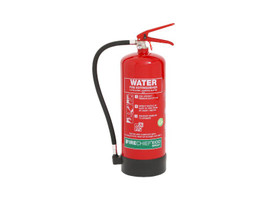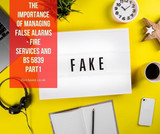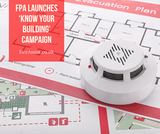Is it a legal requirement to have fire extinguisher training?
If a fire strikes in your workplace, it isn’t enough to simply have a fire safety plan in place. All offices across the UK should have fire extinguishers installed as well as most supermarkets, sports facilities, factories and other public areas and at least one person in these environments should have adequate fire extinguisher training.
In accordance with the Health and Safety at Work Act 1974 which outlines how to comply with health and safety regulations in the workplace and since 2005, it has been the law that every office needs at least one trained person when it comes to using fire extinguishers, with this usually being the fire marshal.
It is important to remember however, that if that person leaves, is on holiday or off work sick, there should still be someone else in the workplace that has fire extinguisher training and because of this, it is recommended that a few people in the office have such training. Regular fire training should be given when the responsible person is first employed, have been transferred and have a change in job roles, a new risk has developed or any equipment used in the workplace has changed.
Unfortunately, most employee’s don’t actually receive fire training and if they do, it is often not practical and trainees are often left to simply relying on an online course or DVD. For this reason, it is all the more important to ensure your responsible members of staff received adequate training to ensure they are up to date with the latest skills and equipment such as the water mist fire extinguisher.
When a fire starts it of course causes panic with people often making situations worse than they need to be. Having a plan in place where people know their nearest fire exit and meeting point is a great way to help reduce worry and if a fire is large, never attempt to tackle it. If however, you feel that the fire is small enough to try to put out, this is where a fire extinguisher would come in.
Useful for putting out relatively small fires, fire extinguishers can stop the spread of flames, reduce damage to property and minimise the risk to people’s safety. It is important to remember to never attempt to put a fire out if you feel it is too large and to never put yourself in danger, it is safer to simply call the fire brigade. If the fire is larger than a small bin - you should close the door, leave the premises and call the emergency services.
Using a fire extinguisher though can be a huge help and gives employees peace of mind when it comes to fire safety in the workplace. When staff do have fire extinguisher training this will involve learning where all fire extinguishers are located, the different types of fire and what extinguisher is used for which, how to use a fire extinguisher and how to determine where to tackle a fire and when to leave one.
There are a range of fire extinguishers on the market spanning from water extinguishers to foam, CO2, dry powder and water mist, all of which are designed to combat different types of fire whether it be a class A fire caused by solids such as wood or paper or a type B fire caused by flammable liquids such as petrol and so on. Taking a look at your environment, you can determine your most likely fire hazards and decide which type of extinguisher would be best for you.
Having a number of people in your workplace who are trained and confident enough to use fire extinguishers means that all of your employees are much safer as everyone knows how to react when a fire starts.
It is also important to ensure that you have an appropriate number of fire extinguishers located in your workplace and that they are suitable for the environment and the fire hazards that come with where you work. For example, having a fire extinguisher than can put out electrical fires or fires caused by paper and wood is great for an office where as a fire extinguisher that can put out cooking oils and fats would be ideal in a kitchen.
Recent Posts
-
The importance of managing false alarms - fire services and BS 5839 Part1
It’s really important to have a fire safety procedure in place should the worst happen. Having corre …22nd Mar 2021 -
FPA Launches ‘know your building’ campaign
The fire protection agency is the UK’s national fire safety organisation. It works to help identify …9th Mar 2021 -
Carbon monoxide poisoning, who is most at risk?
Every year there are around 60 deaths caused by carbon monoxide poisoning which can be avoided. With …23rd Feb 2021




